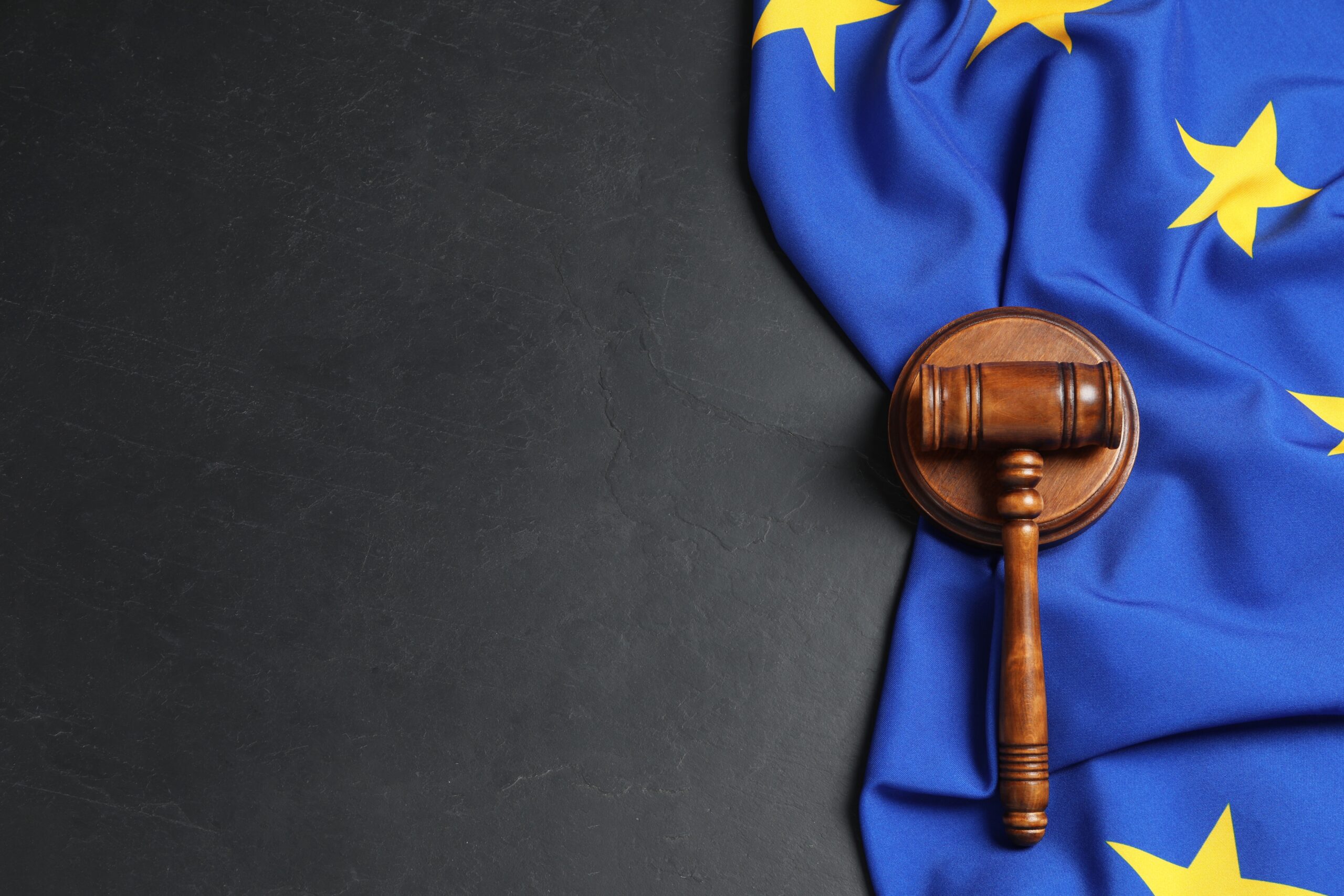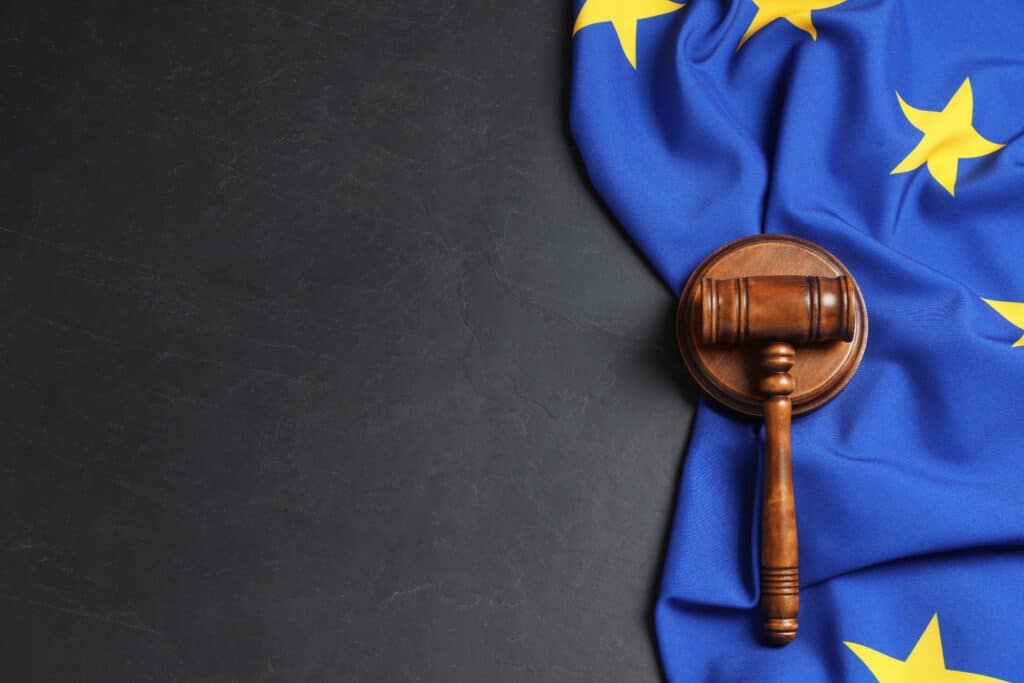Waiting for the EU Omnibus: Latest updates and next steps for businesses
GoodBlog | read time: 7 min
Published: 20 May 2025

Change is on the European horizon – again. Just as businesses had begun to prepare for compliance with the CSDDD, the Omnibus Package has arrived, threatening to rip up much of what had previously been agreed.
Originally suggested in November 2024, the Omnibus Package was released by the EU Commission in February this year with the aim of simplifying Europe-wide legislation on sustainability. This came in response to concerns from various quarters that recently introduced sustainability laws might imposing significant administrative burdens on businesses.
Regardless of the arguments for and against the need for such action, it looks as if change to EU legislation is on now on the way in a number of areas, from sustainable finance rules and the carbon border adjustment mechanism to reporting and due diligence.
Businesses will need to find a way to respond to the new parameters, identify the opportunities and work out which risks they are prepared to accept as a result.
What does the Omnibus package propose?
The Omnibus Package has been released as a series of proposals for negotiation. At present, only the first proposal has been confirmed, the ‘Stop the Clock Directive’ which imposes enforcement delays to the Corporate Sustainability Reporting Directive (CSRD) and Corporate Sustainability Due Diligence Directive (CSDDD). Nevertheless, the direction of travel seems clear.
Some of the most important adjustments affect the CSDDD and are outlined in the second proposal, the ‘Substantive Requirements’ Directive, which is currently under negotiation. This would alter the scope of the requirements in a number of ways.
For SMEs the legal requirements will be substantially reduced, while for larger companies there will also be significant easement. Most notable is the proposal to restrict due diligence to cover only direct (Tier 1) business partners. The cut in frequency of periodic assessments and monitoring of such partners from every year to every five years is also a significant alteration.
Large companies will also be restricted in the amount of sustainability information they can request from SME suppliers. In addition, there is a proposal to scrap the EU civil liability regime, with Member States given the option to devise their own regime as they see fit. The earliest deadline for compliance will now be July 2028.
So what are the implications of these changes, and how should companies address them?
Limiting due diligence to Tier 1 partners
Under the original version of CSDDD, companies were required to map out all their suppliers and business partners to establish, and report upon areas where adverse impacts are most likely to occur and be most severe. Under the Omnibus, companies will still be expected to map out their value chains, but would only be mandated to conduct in-depth assessments beyond Tier 1 where they have “plausible information” that adverse impacts are occurring.
Our advice:
If companies take this reduced approach to due diligence, then they risk missing and addressing any severe human rights and environmental impacts much further down the value chain, which is often where they occur. Failing to go beyond Tier 1 contravenes all best practice frameworks such as the United Nations Guiding Principles (UNGPs) and the OECD Guidelines for Multinational Enterprises on Responsible Business. While this may ensure compliance with the CSDDD, it does not provide companies with the assurances they need that their human rights risks are being properly managed.
As such, we continue to advise that companies channel their resources into a proactive risk-based approach to human rights and environmental due diligence, going beyond Tier 1 to identify and prioritise the most likely and most severe risks. This will allow them to address problems pre-emptively, rather than waiting for them to escalate until they are reported as “plausible information”. Many companies already have such comprehensive plans in place or are planning to introduce them; this will continue to be recommended best practice despite the Omnibus outcomes.
Stakeholder engagement
The Omnibus will reduce CSDDD expectations on stakeholder engagement. Rather than mandatory consultation with a wide variety of affected rightsholders, experts, NGOs and authorities, companies will only be required to consult with workers, their representatives and communities who are directly affected by their activities.
Our advice:
Focusing only on those directly affected by a company’s activities risks missing out on valuable perspectives that can provide a fuller picture of impacts and act as an early warning system for sustainability risks. GoodCorporation places considerable importance on meaningful stakeholder engagement in our assessment work and would recommend that NGOs, civil society groups, relevant authorities and directly affected rightsholders be included in this process. This will ensure that the root causes are properly identified and, most importantly, that workable and appropriate solutions can be proposed and implemented.
Monitoring requirements reduced
CSDDD previously required companies to conduct a review every 12 months to check the effectiveness of their due diligence procedures. Under the Omnibus this will be reduced to every five years.
Our advice:
In a rapidly changing world, carrying out due diligence every five years means companies will be much more likely to miss evolving risks that create or worsen human rights and environmental impacts quickly. To do so might put the entire business in danger. So make sure you have regular due diligence reviews in place, certainly more frequently than five years, and ideally annually.
Terminating relationships with suppliers
The ratified version of the CSDDD required companies to terminate their relationships with business partners identified as presenting serious negative sustainability impacts – although such action should generally be a last resort. The Omnibus proposal states that companies may suspend business relationships while working with the supplier to find a solution, but would no longer require them to terminate relationships even as a last resort.
Our advice:
In reality most organisations would not want to continue sourcing from a supplier with serious adverse human rights and environmental impacts, so in those circumstances any business should be prepared to terminate a contract, even if the proposed new version of the CSDDD would not mandate them to do so. The credible threat of ending a business relationship as a last resort provides companies with valuable leverage when seeking to correct adverse impacts. Not only that, the financial and reputational risks attached to continuing to engage with suppliers that fail to meet the basic human rights standards are simply too costly.
Climate transition plans no longer need implementing
The original iteration of the CSDDD required companies to develop and implement a climate transition plan that sets out emissions reductions targets and the actions they will take to meet these targets. Now they would be obliged only to develop the plan but not to implement it.
Our advice:
There’s little point in developing a climate transition plan without setting out to implement it, so go ahead and do both. Transition plans allow companies to evaluate how they can meet their targets, but they also boost supply chain resilience in the long run and encourage trust from investors and the wider public in any green claims. Implementing such a plan and monitoring progress demonstrates a serious commitment to mitigating adverse environmental impacts which will be welcomed by investors and stakeholders alike.
EU-civil liability removed
The EU-wide civil liability regime for failing to comply with the CSDDD is to be scrapped under the Omnibus proposal. Member States would have been obliged to implement a maximum penalty of no less than 5% of a company’s annual turnover for non-compliance, but now it will be left to individual countries to determine their own civil liability provisions and their own fines.
Our advice:
While this measure removes an important source of pressure on companies, it is nonetheless in any business’s interest to avoid any risk of paying penalties under existing national or EU-wide legislation, not just for the monetary pain it can inflict but for the reputational damage that will attend it. Some Member States may choose to implement specific civil liability provisions, so companies will need to monitor this as the directive is finally transposed into national law. GoodCorporation will keep this under review and will be advising our clients on the latest situation.
Conclusion
Although the Omnibus Package proposes to significantly water down the EU’s sustainability requirements on companies, the spotlight on their human rights and environmental practices and impacts will remain regardless. Business will still be subject to the keen concerns of investors, consumers and civil society organisations, all of whom will continue to demand less harmful behaviour from companies than before the CSDDD was introduced.
While it may be tempting for some companies to pause or scale back their due diligence efforts in the light of the Omnibus, they will be rewarded for holding their nerve and continuing to follow recognised best practice on sustainability as set out by voluntary international frameworks such as those produced by the UN and the OECD.
Proactive risk-based due diligence remains the best way for companies to both prevent adverse human rights and environmental impacts resulting from their operations and protect themselves from legal, reputational and financial risks. Such an approach helps companies mitigate risk and run their operations more effectively and sustainably, while earning trust from stakeholders. Taking a deeper, more proactive approach will reduce the risks to people and planet – which, after all, was the idea at the heart of the CSDDD when it was first developed. So carry on: best practice remains the way forward, regardless of what the letter of the law might finally say.
How GoodCorporation can help
GoodCorporation offers a range of services to help organisations prepare for and comply with the CSDDD. From identifying and assessing adverse impacts to developing policies and procedures that strengthen compliance practices, our team supports companies in integrating best practice at every stage of the due diligence process.
Our Framework on Human Rights and Environmental Due Diligence also provides a set of responsible business principles designed to enhance the robustness of management practices. Organisations can use the framework to identify, prevent, mitigate, and remediate human rights and environmental impacts, both within their own operations and across their business relationships.
Download your free copy of the framework below or contact us to learn how our CSDDD services could support your organisation.
work with us

